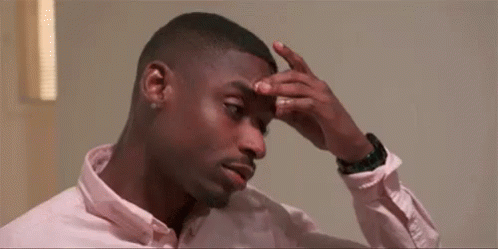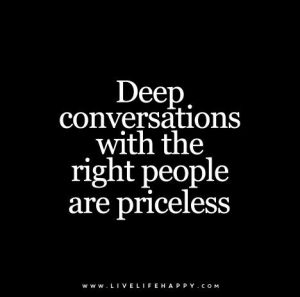Coming out of these past couple of weeks, I find myself once again preoccupied by a whirlwind of thoughts. Here are a set of three.

I.
First, the readings this week were on the topic of intersectionality–and they were the most confusing and difficult to understand for me so far. Intersectionality is a topic that I have struggled to understand hearing it under different contexts back on campus as it is only briefly mentioned before the conversation moves on. Unlike many of my peers it seems, I have never heard the term in a class setting, never had it explicitly defined. All I knew came from bits and pieces from posters, in snippets of conversation, etc. How problematic is that? The engineering and many other STEM curricula give so little space for such conversations to occur, and as a result, a large chunk of the student population is just clueless about topics like these.
After discussing the readings in seminar with the other Moxies, I do feel like I have a better understanding of the term, but something still bothers me about it. I worry that when people normally say the term, they just use it as a broad statement to put a name to their struggle, rather than actually understanding what it means. I’m not going to lie, if you haven’t noticed, I’m avoiding trying to define the term. I don’t want to give the wrong definition because this just perpetuates the problem. Yes, you can google a definition, but that doesn’t tell you much about the power of intersectionality, using it as a tool as it is meant to be in human rights movements. Heck, this blogger’s spell-check doesn’t even recognize it as a real word. This might be me just projecting, but I doubt if I went up to anyone on campus (or the street) and asked them what “Intersectionality” meant, they would be able to articulate it. But maybe that’s because it means different things to different people? But is that ok if it’s being used as a grounding concept at the forefront of their stance?
Literally every one of the Moxie readings has referenced the necessity of some sort of collective movement based on the strength and power people marginalized categories (based on race, gender, class, sexual orientation, etc.) truly have rather than on their subjugation. Intersectionality seems to bring all of this together into one comprehensive idea, and if it was more widely known and understood, I think it potentially could be the answer to all of these questions we’ve been having about how to go about social change.

II.
Another thing that gave me pause for thought this week came after our group visited the Brooklyn Family Defense Practice and heard about what they do and why it’s so important. As we spoke with one of the lawyers, I started thinking about the disparity between the work at the nonprofit where I am interning, Sanctuary for Families, and that of the BFDP. Sanctuary’s mission is to provide services and resources to victims of domestic violence, while the BFDP represents those accused in such cases, among others. In theory, I knew that sometimes domestic violence or child neglect cases could be unfounded, and that the accused absolutely deserve representation. But to be honest when I hear “child abuse/neglect,” or similar phrases, I automatically and subconsciously side with the survivor. And working at Sanctuary, I see so many examples of children and their mothers or fathers that have gone through so much because of all kinds of awful abuse, this mindset was even more wired into me.
It was startling to hear about the work that BFDP does, opening my eyes to the associations people automatically make about such cases. I know that the work Sanctuary does is a bit different, being a place where survivors themselves come for help while BFDP usually deals with outside reports, but the idea and connotations of the cases are similar. And I’m conflicted, because on the one hand, people–women and children in particular–struggle so much in getting the help and resources they need to escape their offenders as I see and hear about all the time at Sanctuary, but that doesn’t mean the perpetrator doesn’t deserve to be represented in court. People want to automatically assume that the person being accused is the bad guy because of all these awful negative connotations, when in reality, often the story is a lot more complicated. And that story many times isn’t fully heard because of the nature of the accusation, people’s inherent biases, and institutionalized as well as personal discrimination or prejudices. Without the full story, how can the extent of the issue be determined?
I have discussed with my supervisors how children are affected mentally by all kinds of traumatic experiences, but I never stopped to think about the mental repercussions of what could come after, being put in foster care and separated from their families. And it’s difficult to judge because how can you ever get the full story?

III.
One last thing I want to reflect on has to do with an interaction I had with someone in the grocery store. My mind being particularly preoccupied that day, in the moment I failed to notice that so much was just wrong and disgusting about what happened. As I was walking back from using the restroom, some guy stuck out his arm to stop me.
 He has the audacity to just block my way?
He has the audacity to just block my way?
He then proceeds to explain how he had seen me pass by earlier, thought I was cute, and that we should go out for “a drink sometime, or maybe rosé? *insert patronizing grin*”

…if only I had stopped him then and there, told him I wasn’t interested, and moved on. He then proceeded to ask where I was from, and when I said the “South,” he tried to guess the state and the city.

But for some reason–and this came completely unconsciously–I was surprised and horrified to find that I felt like I was obligated to respond to his intrusions. I almost felt bad for turning him down and saying I thought he was too old for me. But even THEN he kept pressing, trying to get my number, saying we could still go out for “ice cream.”

Oh, everything is ok though, because he assured me, “You can say no if you want, that’s fine.”

I’m not going to go into all the details, but the rest of the interaction was pretty much more of the same, and when my brain finally caught up and I left, I heard his friend CONGRATULATING him with a “good job” (though how he “succeeded” in any way is beyond me.) And for the next hour I blamed myself for what happened, how dumb I was to stay talking to this rando when I should’ve just said “not interested” from the beginning, from the initial violation of my personal space. But really there are so many bigger problems at hand, and it’s taken me some time to realize how it all goes back to the same issues we’ve been talking about this entire summer. Men often feel like they have the right to women, and women often, whether consciously or subconsciously, feel obligated to respond, to meet their needs and desires. I certainly have never thought of myself as someone who would have this mindset, but there it came out, me feeling bad for turning this guy down. It really gives you pause for thought. Even though I logically know I shouldn’t have felt this way, for a time I was overwhelmingly just disappointed in myself, not thinking of something sassy to say, not ending the conversation earlier…But that’s not the point, is it? Even if I had said something else, done things differently, the problematic nature of the interaction doesn’t change. I could go on for pages about what I think of this situation, but for the sake of space, I’m going to stop here. One closing thought:
This isn’t a unique interaction.
It happens all the time.
Why don’t more people see how big of an issue that is?







 He has the audacity to just block my way?
He has the audacity to just block my way?







 After completing the article, I was sort of annoyed by the author’s vague resolution. She stated that in order to stray away from individualism, we need to make strides towards “collective values.” I mean….duh…sis… of course. But, what concrete things can we do to alter this success obsessed world we live in?
After completing the article, I was sort of annoyed by the author’s vague resolution. She stated that in order to stray away from individualism, we need to make strides towards “collective values.” I mean….duh…sis… of course. But, what concrete things can we do to alter this success obsessed world we live in?






